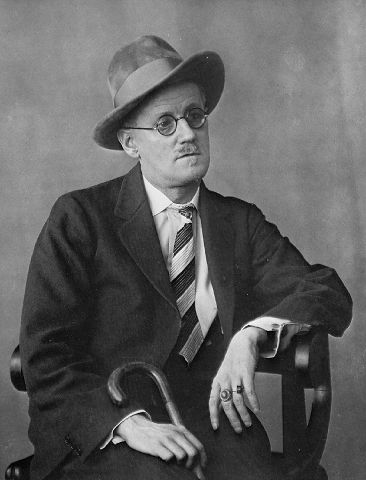The Atul Gawande
article from the New Yorker went viral not only in the esoteric world of the medical blogosphere, but it also grabbed the attention of our health care
policy makers in Washington DC. Almost universally, Dr. Gawande's piece is being hailed as "hitting the nail on the head". President Obama has referenced it in several speeches. I actually invested a lot of time in the article. I pored over it like I was studying for an embryo exam in med school, underlying key passages like a tool. My impression is perhaps less flattering.
In the piece, he visits McAllen, Texas, notorious for being one of the most expensive places (per capita) for the delivery of health care in America. McAllen spends twice as much per patient as the national average. Gawande sought to understand why.
Now I've been reading Gawande's stuff in the New Yorker for ten years and I've always enjoyed his writing. He writes with a lucid effortlessness that makes me extremely jealous. You always get the sense that he pumps these pieces out between cases, writing on the back of his patient census. (As a side note: I've always enjoyed writing but for years I'd been painfully paralyzed by self-doubt and over-analysis. I was the kind of guy who would write paragraphs over and over, tinkering, changing a word or syntactical construction here and there to get it "just right". Incapacitating writer's block. I couldn't finish anything. I hated everything I wrote. Especially after writing the same sentences 6 or 8 times. It was blogging that gave me the release. In the blog format, you have to just "let it fly". It's almost like an on-line writing workshop. Straight from mind to paper to critical evaluation. There's no time for timorous apprehension. Anyway.) In addition to his adroit style, he has a way of focusing attention on the heretofore unnoticed details that actually play a larger role in how events play out. He's a lot like Malcolm Gladwell in that respect. In this article, instead of focusing on insurance companies or defensive medicine or the pharmaceutical industry, Gawande alights on the idea that the driving force behind escalating health care costs are doctors. After all, that useless MRI never gets done unless a physician orders it. The suspect heart cath doesn't get performed unless a cardiologist (the one who stands to profit) deems it necessary.
Ultimately, he concocts a theory of physician mindset. Doctors at the Mayo Clinic deliver premium health care at a much lower cost than the national average. Gawande's proposal is that we need to change the way we structure ourselves as physicians. At Mayo, collaboration is strongly encouraged. Everyone gets paid the same. There are no financial incentives to perform unnecessary medicine. This is his ideal. How such a collectivist commune translates to the rest of the country where the overwhelming majority of medicine is private practice is unclear. In any event, he comes to focus on what he denotes the "culture of money" that is driving the extravagance seen in McAllen. To elucidate this, he goes on to note that many doctors in McAllen have alternative sources of income, such as partial ownership of strip malls and apartment complexes. (Another side note: What does it matter what a doctor does with his/her spare time? If a doc is making money off real estate deals on the side, how in god's name would that effect his clinical decision making as a physician? If anything, I would think it would tend to make him/her less apt to order/perform unnecessary procedures. As a matter of fact, maybe I ought to stop wasting so much time blogging and look to capitalize on the depressed Cleveland real estate market in my spare time. Then I could kick back and do "casual" general surgery.)
But it is this phrase---
culture of money---- which has seized the attention of our DC policy wonks. And it's not surprising. Solutions to compex social problems tend to get oversimplified, in the "Aha! I never realized that!", Gladwellian fashion. It's much more reassuring to attribute something like exponentially rising health care costs to a single factor like doctors succumbing to the "culture of money" than to acknowledge that the real etiology is extraordinarily nuanced and multifactorial. Targeting physician motivations as the primary culprit makes it much easier to construct a feasible reform strategy. Eliminate incentives that drive physicians to overutilize and voila', health care crisis solved! Then you can package a reform bill that includes features like bundling of payments with extended global periods, disallowing physician ownership of surgicenters/hospitals, restructuring reimbursement such that graduating doctors are less inclined to subspecialize, and encouraging the creation of collaborative physician groupings a la the Mayo Clinic. Assuming that your underlying premise (greedy doctors) is correct, then the legislation makes perfect sense; it's a no brainer.
I obviously think Dr Gawande has gone off the tracks just a bit with his analysis. In the beginning of the article, he chats with a family practice physician who says "...young doctors don't think anymore". But that line of thought is truncated. Instead, we wander off down the pathway of physician greed and intransigence and we never return. I'd like to revisit the idea of physician thinking.
Let's first address the idea that monetary considerations are driving physician decision making. In the article, Gawande admits that the physician-owned hospital in McAllen barely gets a
sixth of the patients in the region. So that means that the overwhelming majority of physicians in McAllen do not derive any economic benefit from self-referral to a physician owned facility. So what about procedure-based incentives? Certainly, we need to do a better job of clarifying the indications for specific interventions. The cardiologists and orthopedists who are overutilizing healthcare resources are doing so to line their own pockets. This is undeniable. But I truly believe that this sort of unprincipled practice represents the exception rather than the rule. (Remember, McAllen itself is an
outlier; most hospital systems hover around the mean in terms of health care expenditures.) Also, these proceduralists don't materialize out of thin air. Someone has to consult them. And this gets me to my point.
I think the family practice guy in McAllen who talks about young doctors who "don't think anymore" gets at the crux of the problem. A lot of physicians have stopped thinking about patient care, for a multitude of reasons. Reimbursements suck. You have to see a gazillion patients in the office keep your head above water. Internists cover several ER's and accumulate large censuses at hospitals all across town. There are only so many hours in the day. You can't possibly provide the amount of thought and time that each patient on your list requires. So you subcontract out a lot of the work of medicine to specialists. You don't make any less money either way. So you might as well "cover yourself" and get the specialists involved. And of course specialists will tend to recommended expensive radiographic tests and interventional procedures. That's what they do. And they don't necessarily benefit financially from all the orders they write. Think about the typical 44 yo female admitted with abdominal pain. GI gets consulted. The patient recently had a colonoscopy and an EGD which were normal. The CT is normal from the ER. How often will the GI consultant simply write: no further recommendations? How about never. He's a specialist for god's sake. There's this tendency to DO. To order something. So you get an ultrasound and a HIDA scan and maybe a CT angiogram of the mesenteric vessels and finally a small bowel follow through. It all comes back normal of course, but now you've covered all your bases. You've
done something. And this happens all the time. Meanwhile, the internist cursorily swings by once a day, sees all the work being done by his consultants and rushes off to his next patient. Is it laziness? Or is it just a natural reaction to an increasingly difficult economic reality?
A slightly different scenario. I know an excellent internist at one of my hospitals who has a proclivity for shotgun consulting half the hospital on a lot of his admits. As a clinician, I think he's fantastic; detail-oriented, takes his time, cares about his patients. But he gets a lot of consults. Any fever gets an ID consult. Abdominal pain warrants consults from GI and general surgery. He tends to order a lot of needless X-ray studies. If a CT scan mentions a small incidental adrenal adenoma, he'll order an MRI and get an endocrine consult when all you need to do is get a follow up CT in 6 months or so. He isn't lazy. He works his ass off. He knows everything that goes on with his impatients. But in his mind he is providing a higher standard of care by involving multiple specialists and getting the maximum amount of work up done. He doesn't have any nefarious kickback schemes. He just truly believes that his patients are better served by having multiple sets of eyes looking after them. The issue of cost never crosses his mind.
So we have two paradigms: The primary care doc who has stretched himself out too thin and the one who thinks he is providing superior care by overconsulting. Neither of these two paradigms has anything to do with greed. One covers his benign neglect by getting specialists to do the dirty work. The other succumbs to the idea that more is better, that it isn't enough to just tell a patient to take a couple of Tums and call him in the morning.
These two models are what need to be addressed because they're much more prevalent than doctors self referring unnecessary cases to facilities that they have a financial stake in. The gatekeepers of medicine (internal medicine, family practice) control the flow of patients to specialists. Specialists will never change; they will always be procedurally oriented. On the other hand, changing the thinking of the gatekeepers (altering the way they practice medicine, how and when they order consults, incentivizing them financially to do more of the work on their patients themselves) will do a lot more to reduce health care spending in the long run than trying to attack this supposed "culture of money" afflicting American physicians in places like McAllen. We aren't in the position we are because of McAllen. McAllen is an outlier, it's atypical; but it certainly represents a faster way to fall further into the red. But places like McAllen are rare. We've tripled the amount of health care spending in America since 1985 even without the McAllen model being common. There's obviously more to it than strip mall owning, fast car driving, overly-prolific orthopedists in south Texas.
So let's ease up on the Gawande/McAllen fawning for just a bit. It's an interesting, well written article but the conclusions in it are highly suspect and certainly don't represent a panacea solution to the extremely complex healthcare dilemma....












